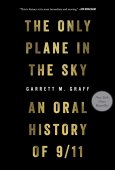
For readers outside the United States, here's why this week felt especially raw. On Wednesday, Sept. 10, conservative activist Charlie Kirk was shot and killed during an outdoor event at Utah Valley University. That same day in Evergreen, Colorado, a 16-year-old opened fire at a high school, wounding two fellow students before dying of a self-inflicted gunshot wound. Local officials say preliminary evidence suggests he had been "radicalized by an extremist network." Meanwhile, in Charlotte, North Carolina, 23-year-old Ukrainian refugee Iryna Zarutska was stabbed to death on a light-rail train. We also marked the 24th anniversary of 9/11—an annual reminder of shared grief. And of course, a few weeks ago, there was a shooting at a Catholic elementary school in Minneapolis, just weeks after a lawmaker was killed and another was injured in their homes nearby.
These headlines matter for the global church because American cultural conflicts rarely stay within American borders; they shape online conversations, missionary support, campus ministries abroad, and the way believers interact with neighbors who observe them to learn what Jesus is like.
Jonathan Haidt's The Righteous Mind offers a sobering lens: most moral judgments are born first in intuition—our "gut"—and only later hire reason as a skilled defense attorney. Morality, Haidt argues, both binds and blinds: it binds us together with loyalty and shared purpose, and it blinds us to the humanity and arguments of those outside our tribe. You can feel that dynamic humming beneath the week's headlines. A political assassination prompts instant alignment with our preferred commentators. A school shooting tempts us to project motives onto millions who never pulled a trigger. A light-rail murder lures us toward conclusions about entire communities rather than one perpetrator. Our hearts reach for stories that vindicate "us" and explain "them." Haven't you heard someone say this week, "They killed Charlie."
Christians, of all people, should be the least susceptible to contempt's gravity. We confess a Lord who loved his enemies, who forbade hatred even when hatred felt deserved, and who remade enemies into family. So the task before us is not to mute truth or minimize evil, but to refuse collective blame and unlearn the habit of demonizing neighbors. We can name political violence as evil without cursing those who disagree with us politically; we can mourn gun violence and debate policy with rigor while refusing to sneer at gun owners or activists; we can demand justice for Iryna Zarutska's killing without smearing whole communities by association.
Scripture pushes us into a posture that feels both bracing and impossible. "Let every person be quick to hear, slow to speak, slow to anger" (James 1:19). Quick takes are cheap; listening is costly. "Love your enemies and pray for those who persecute you" (Matt. 5:44). Prayer humanizes the person we would rather caricature. "By this all people will know that you are my disciples, if you have love for one another" (John 13:35). A community that refuses contempt becomes a living argument for the kingdom. "The Lord's servant must not be quarrelsome but kind... correcting opponents with gentleness" (2 Tim. 2:24–25). Gentleness is not a lack of conviction; it is the Christian way of carrying conviction.
There is one simple, stubborn truth to keep repeating until it sinks in: you cannot win people you hate. You cannot persuade those you secretly despise. You may score rhetorical points, but you will not win a person. Evangelism withers in the soil of contempt; so does neighbor love, peacemaking, and any hope of civic repair. If Haidt is right about our gut-first moral psychology, then one practical application for Christians is to put our instincts under the cross as quickly as we can: pause before posting; interrogate our first loyalties; seek out conversations that complicate our certainties; pray for those on the "other side" by name; and let lament precede leverage. The Spirit's fruit—love, joy, peace, patience, kindness—will not grow where bitterness is cultivated.
So we grieve this week's losses, tell the truth about evil, and still refuse to hate. May the Lord make us eager to love the very neighbors we are tempted to fear. And may he teach us again that the way of the cross is not just the way we are saved—it is also the way we speak, suffer, and stay faithful in a fractured age.
Here are maybe some steps to follow this week:
- Name a person, not a camp. Pray for specific people on "the other side" by name (Matt. 5:44).
- Stay hospitable. Share a meal or a coffee with someone you disagree with—no debating agenda, just humanizing presence (Rom. 12:20–21).
- Lament before you leverage. Mourn the death, the fear, the confusion. Grief is not a talking point; it's a prayer (Ps. 34:18).

A year ago, a woman walked up to me and said, "You need to talk to my husband." As a pastor, my mind started racing—was he struggling? Did he need counsel? Had he done something foolish? She stayed firm: "No, you really need to talk to him."
She's attended our church for years, and he would often come with her. When I approached him, he turned with a smile and said, "I became a Christian yesterday." I stood there, stunned.
His wife has prayed for him faithfully for years. His salvation has been a regular request—lifted by her and many in our church. Last fall, they joined a small group in the church for the first time. It was already full, but the group made space because they knew them and wanted them in.
That week, he had driven a truckload of supplies to North Carolina to help with hurricane relief. On the way back, he passed the Billy Graham Library in Charlotte, and for whatever reason, he decided to stop. By the time he left, he had given his life to Christ. Someone there shared the gospel and led him to trust in Jesus. He ended his story with, "I'm 67 years old. It's never too late."
To celebrate, he went to Chick-fil-A, and then he called his wife: "Guess what? I trusted Christ."
When I returned to her, she said, "He's changed so much already. He's different."
To those married to unbelieving spouses: continue to pray. The Lord knows.


It's been 24 years since September 11, 2001. I was hiking Whiteface Mountain and didn't hear about the attacks until evening. I remember trying to call my parents from a McDonald's in Lake Placid, New York, wondering if my dad was at the Pentagon that day.
One of my favorite books about that day is The Only Plane in the Sky. It might be my fourth-favorite listen on Audible—right behind The Lord of the Rings, narrated by Andy Serkis. Hearing the firsthand accounts taught me a great deal about that day. If you like to listen to books, this is a good one.
Thanks for checking in.
Sign up here to receive Darren Carlson's The Monday After email. This weekly newsletter is designed to encourage your faith and share inspiring stories of what God is doing around the world. Each edition features a short devotional, a story that will give you a glimpse of His work in unexpected places, and a resource you might find helpful.
2.2.26Here We Are Alone Together.
I've been thinking lately about how design shapes our experience of beauty—how the things we build quietly train us in what feels "normal," what feels satisfying, what feels worth wanting. When my son was 14, he wrote his first worship song. The opening line was simple and haunting: Here we are […]
1.26.26Trust Profoundly Shapes Our Relationships.
Trust profoundly shapes our relationships. The degree of trust we hold determines how we interpret the actions, words, and motives of those closest to us. When trust is high, we instinctively offer grace, patience, and the benefit of the doubt. In contrast, low trust skews our perception negatively, causing us to […]
1.19.26Must I Hate You if I Disagree?
There's a discipleship problem I keep running into: we assume that disagreement means someone is a bad person. Not just "wrong." Not just "confused." But morally suspect. Unworthy. "How could you believe that?" quickly becomes, "What kind of person are you?" And once we make that move, we stop listening and […]
1.12.26When God Gifts Someone Else
There are many people in my life who are simply better than I am at many things. They communicate more clearly. They lead more naturally. People listen to them more easily. We all have people like this in our lives. And let's be honest. Sometimes the most natural response is not […]
 Darren Carlson
Darren Carlson